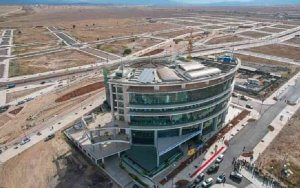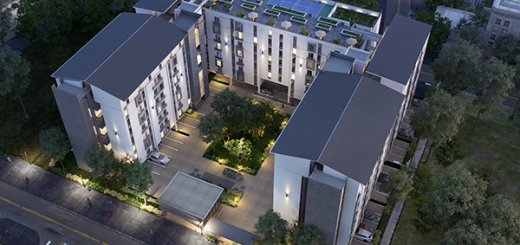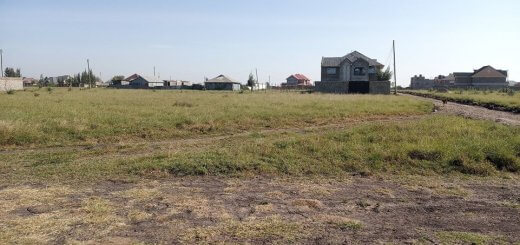Devolution: Unlocking Transformative Real Estate Opportunities in Kenyan Counties
Devolution, introduced by Kenya’s 2010 Constitution, marked a significant shift in governance by transferring power and resources from the national government to 47 newly established county governments. This decentralization aimed to enhance service delivery, promote equitable development, and empower communities at the grassroots level. Over the years, devolution has significantly influenced various sectors, with real estate development standing out as one of the most transformed.
The ripple effects of devolution are visible across Kenya, from increased infrastructural developments to the rise of new urban centers in counties that were once marginalized. In this article, we’ll explore how devolution has shaped real estate development in Kenya, the opportunities it presents, and the challenges investors should consider.
Understanding Devolution in Kenya
Devolution was introduced to address historical imbalances in resource allocation and governance. It aimed to:
- Promote equitable distribution of national resources.
- Bring decision-making closer to the people.
- Foster development at the county level by empowering local governments.
Each county now has control over its development agenda, supported by allocations from the national government and revenue generated locally. This autonomy has had a profound impact on infrastructure, land use, and housing—key drivers of real estate development.
The Role of Devolution in Real Estate Development
Devolution has transformed Kenya’s real estate landscape in several ways:
1. Increased Infrastructure Development
Counties now prioritize infrastructural projects such as roads, water, electricity, and waste management systems to attract investment.
- Improved Accessibility: Upgraded road networks in counties like Meru, Kisii, and Kitui have opened up previously inaccessible areas for real estate development.
- Urbanization of County Headquarters: Towns such as Kakamega, Machakos, and Nanyuki have grown rapidly due to county-level investments in infrastructure.
2. Decentralized Economic Activities
Devolution has encouraged businesses to move beyond Nairobi and establish themselves in other counties.
- Industrial Parks and EPZs: Counties like Taita Taveta and Uasin Gishu are developing industrial parks, creating demand for both commercial and residential properties.
- Boost to Agribusiness: Agricultural counties such as Kericho and Nyeri have seen increased investments in agro-processing facilities, driving the demand for nearby housing and amenities.
3. Rise of New Investment Hubs
Devolution has spurred the growth of secondary cities and towns, creating new real estate hotspots.
- Nakuru and Kisumu: These cities have become regional hubs for commerce and real estate development due to increased government focus and private sector investment.
- Isiolo and Turkana: Located in historically marginalized regions, these counties are witnessing a surge in real estate activity due to infrastructural projects like the Lamu Port-South Sudan-Ethiopia Transport (LAPSSET) corridor.
4. Housing Demand in Counties
With more people migrating to counties for job opportunities, there is a growing demand for housing.
- Affordable Housing: Counties are embracing the national affordable housing agenda, with projects targeting middle and low-income earners.
- Mixed-Use Developments: Counties like Kiambu and Mombasa are seeing the rise of mixed-use developments combining residential, commercial, and recreational spaces.
Opportunities for Real Estate Investors
Devolution has unlocked numerous opportunities for real estate investors:
1. Investing in County Headquarters
County capitals have emerged as economic and administrative hubs.
- Residential Properties: Rising populations in towns like Eldoret and Bungoma create a demand for housing.
- Office Spaces: With more devolved units setting up offices, the need for modern office spaces is increasing.
2. Hospitality and Tourism Real Estate
Counties with natural attractions, such as Narok (Maasai Mara) and Laikipia, are capitalizing on devolution to improve tourism infrastructure.
- Eco-Lodges and Resorts: Investors can explore the growing market for eco-friendly accommodations.
- Conferencing Facilities: With counties hosting events and conferences, demand for such facilities is on the rise.
3. Affordable Housing Projects
The migration of people to county towns has led to increased demand for affordable housing.
- Public-Private Partnerships (PPPs): Counties are partnering with private developers to deliver affordable housing projects.
- Rental Apartments: High rental yields in towns like Kitale and Kisii make residential investments attractive.
4. Commercial Real Estate
Counties are creating conducive environments for businesses, increasing the demand for retail and office spaces.
- Shopping Malls: Emerging towns like Kerugoya and Voi are witnessing a rise in shopping malls to cater to middle-class consumers.
- Business Parks: Counties like Thika are focusing on establishing business parks to attract investors.
5. Agricultural Land for Development
Counties with rich agricultural potential, such as Trans Nzoia and Bungoma, offer opportunities for agribusiness and agro-tourism projects.
Challenges in Real Estate Development Due to Devolution
Despite its benefits, devolution has also presented several challenges for real estate development:
1. Inconsistent Land Policies
Different counties have varying land use policies, creating challenges for investors seeking uniformity.
- Solution: Engage local land boards and conduct due diligence to understand specific county regulations.
2. Corruption and Bureaucracy
Corruption in some county governments has hindered the smooth implementation of real estate projects.
- Solution: Work with reputable partners and advocate for transparency in county-level transactions.
3. Poor Urban Planning
Rapid urbanization in counties has led to unplanned settlements and strain on existing infrastructure.
- Solution: Advocate for integrated urban planning and support counties in developing sustainable cities.
4. Limited Access to Financing
Investors in rural counties often face challenges accessing loans for real estate development.
- Solution: Leverage alternative financing options, such as SACCOs and PPPs, to fund projects.
Successful Real Estate Developments Enabled by Devolution
Several counties have leveraged devolution to attract investments and develop transformative real estate projects:
1. Tatu City, Kiambu County
This mixed-use development features residential, commercial, and industrial zones, highlighting the county’s potential for large-scale projects.
2. Lake Basin Mall, Kisumu County
As the largest mall in western Kenya, Lake Basin Mall has become a landmark for retail and entertainment in the region.
3. Machakos People’s Park, Machakos County
This public recreational park has attracted visitors and boosted real estate activity in the area.

Devolution
4. Konza Technopolis, Machakos County
Although still under development, Konza is set to be a smart city and technology hub, creating opportunities for housing and commercial spaces.
The Future of Real Estate Under Devolution
As devolution continues to evolve, the future of real estate in Kenyan counties looks promising. Emerging trends include:
- Green and Sustainable Developments: Counties are increasingly adopting eco-friendly construction practices.
- Smart Cities: Projects like Konza Technopolis demonstrate a shift toward technology-driven developments.
- Decentralized Affordable Housing: Counties are playing a significant role in bridging Kenya’s housing deficit.
- Increased Foreign Investment: Improved governance and infrastructure in counties are attracting international investors.
Conclusion
Devolution has reshaped Kenya’s real estate sector by decentralizing resources, empowering counties, and creating new opportunities for development. From increased infrastructure to growing urban centers, the impact of devolution is evident in nearly every corner of the country.
For investors, this decentralized governance model offers numerous opportunities to tap into emerging markets and diversify portfolios. However, it also requires navigating unique county-level challenges and regulations. With the right strategies and partnerships, real estate players can contribute to the growth of Kenya’s counties while reaping significant rewards.



